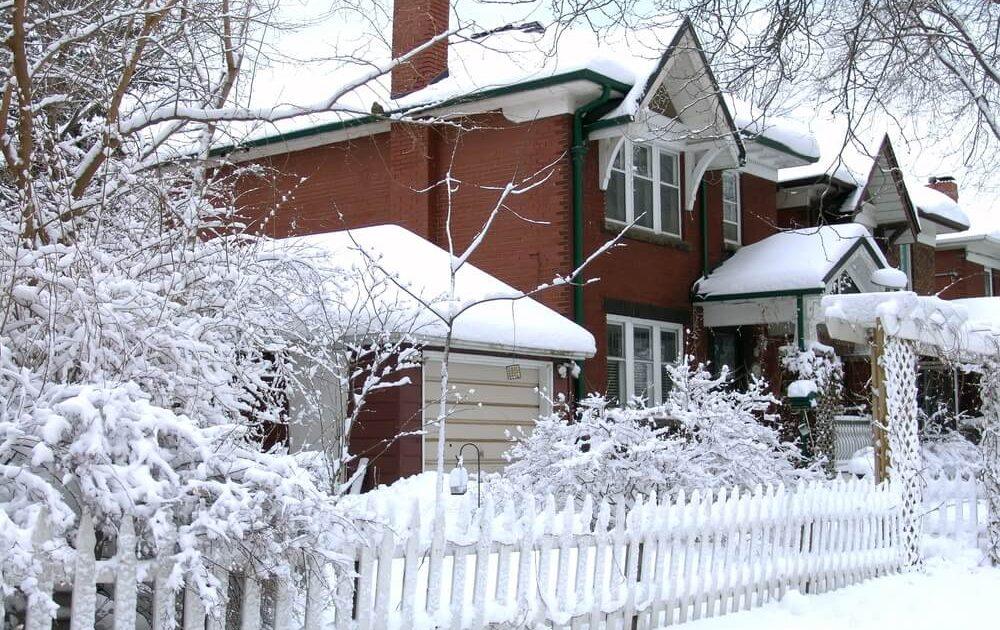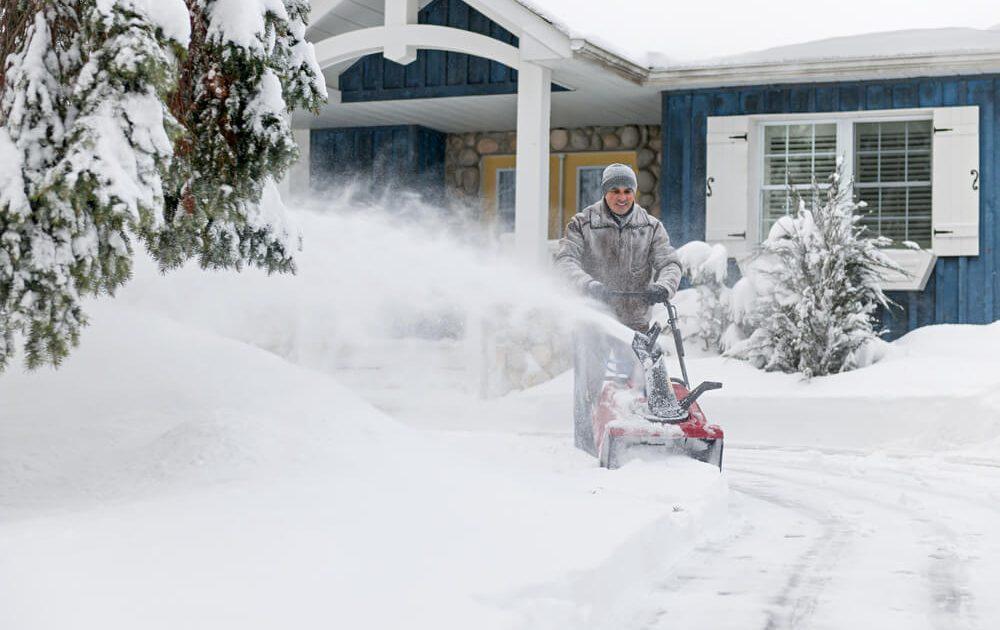
As the winter chill descends on Canada, homeowners face the familiar challenge of clearing snow and ice from their driveways. Shoveling, plowing, and salting can be not only physically demanding but also time-consuming. This is where heated driveways step in as a modern solution, offering convenience and safety during the harsh winter months.
What Are Heated Driveways?
Heated driveways are a radiant heating system designed to keep driveways clear of snow and ice. These systems utilize either electric coils or a hydronic (water or gas-based) system to warm the surface, effectively melting away any accumulated snow or ice. This technology has become increasingly popular due to its ability to save time, and effort, and provide added safety.
Canada is known for its harsh winter climate, characterized by heavy snowfall and freezing temperatures. With such extreme weather conditions, the need for efficient snow removal is crucial for safety and accessibility. Heated driveways offer a reliable and hassle-free solution, making them a valuable addition for homeowners in Canada.
Discover Heated Driveways in Toronto and the GTA with AHS!
Benefits of Heated Driveways

Effortless Snow Removal
A heated driveway offers a remarkable solution to the arduous task of manual snow removal. Homeowners are no longer burdened with the chore of clearing heavy layers of snow. Instead, with a heated driveway, you can simply enjoy the comfort of your home, saving both time and physical effort.
Enhanced Safety
One of the most crucial advantages of a heated driveway is the significant improvement in safety. Slip-and-fall accidents are a common hazard on icy surfaces, particularly during the winter months. By maintaining a consistently clear path, heated driveways greatly reduce the risk of such accidents. This ensures a safer environment for both residents and visitors, providing peace of mind throughout the winter season.
Extended Driveway Lifespan
In regions with harsh winters, the freeze-thaw cycle can wreak havoc on driveway surfaces. This cycle, wherein water seeps into cracks, freezes, and expands, leads to unsightly surface damage, including cracks and spalling. A heated driveway acts as a protective barrier, providing a constant source of warmth that prevents this damaging cycle. By doing so, it contributes significantly to the overall longevity of your driveway.
Reduced Use of Salt & Chemicals
Traditional de-icing methods often involve the liberal application of salt and chemicals. While effective, these substances can have detrimental effects on driveways, nearby flora, and the environment at large. With a heated driveway, there is no longer a need for these potentially harmful materials. This not only preserves the structural integrity of your driveway but also promotes a safer and more environmentally friendly winter solution.
Limitations of Heated Driveways

Installation Costs
Undoubtedly, the advantages of a heated driveway are substantial, but it's important to acknowledge the initial investment involved. The total cost can vary significantly based on factors such as the chosen system type, the size of the driveway, and the existing conditions of the pavement. Homeowners contemplating this upgrade should carefully evaluate their budget and weigh it against the benefits of a snow-free winter.
Operating Costs
It's worth noting that while heated driveways are an ingenious solution to winter maintenance, there are associated operational expenses. Specifically, electric systems may entail higher ongoing costs compared to their hydronic counterparts. Before committing to a heated driveway, homeowners should conduct a thorough assessment of their budget and utility expenditure. This ensures that the long-term benefits align with their financial considerations, providing a balanced perspective on this valuable investment.
Types of Heated Driveway Systems

Electric Heated Driveways
Electric heated driveways are a cutting-edge solution for keeping your driveway snow and ice-free. This system involves the installation of insulated cables or mats beneath the surface of your driveway. These cables are then connected to your electrical supply and managed by a thermostat. When activated, they generate a gentle, consistent heat that efficiently melts away snow and ice.
Benefits Of Electric Heated Driveways
- Simple installation & customization: Electric heated driveways are remarkably easy to install. The process involves laying out the cables or mats during the driveway construction or renovation. This simplicity also extends to customization, allowing for tailored solutions to fit driveways of various shapes and sizes.
- Space efficiency: Unlike hydronic (glycol/gas) systems that require a dedicated boiler room, electric heated driveways do not demand any additional space. This makes them ideal for properties where space may be limited.
- Convenient automation: These driveways can be easily automated, providing you with the convenience of a snow-melting system that knows when to kick in. Whether you're at home or away, you can trust your electric heated driveway to keep your path clear and safe.
- Long-lasting performance: With proper care and maintenance, electric heated driveways have a lifespan of up to 20 years. This impressive longevity ensures that your investment pays off over the long term.
Limitations Of Electric Heated Driveways
- Higher operating costs: Compared to hydronic (glycol/gas) systems, electric heated driveways may have slightly higher operating costs. It's essential to consider your budget and potential utility expenses when evaluating this option.
- Power source reliance: Electric systems rely on a single power source. This can be limiting if there are disruptions or outages in the electrical supply. For properties in regions prone to power interruptions, it's important to have a backup plan in place.
Hydronic Heated Driveways (Glycol/Gas)
Hydronic heated driveways employ a sophisticated closed-loop system. This system consists of PVC tubes that contain a specially formulated glycol mixture. This mixture circulates beneath the surface of your driveway, carrying heat generated by a boiler. Typically, these boilers run on natural gas or propane.
Benefits Of Gycol Heated Driveways (Hydronic)
- Cost-efficiency: Glycol heated driveways generally boast lower operating costs compared to their electric counterparts. This is due to the high efficiency of the glycol mixture in transferring and retaining heat.
- Reliable snow melting: One of the standout features of hydronic systems is their ability to consistently melt snow, even during heavy and sustained snowfall. This makes them an excellent choice for areas prone to extreme winter weather.
- Ideal for larger areas: Glycol heated driveways are well-suited for extensive driveways and larger surfaces. Their robust design ensures that they can effectively cover a greater expanse.
- Versatility in control: You have the flexibility to choose between manual operation and automated systems. This versatility allows you to tailor the system's use to your specific needs and preferences.
Limitations Of Gycol Heated Driveways (Hydronic)
- Complex installation: Installing a glycol heated driveway is a more intricate process compared to electric systems. It involves setting up the closed-loop system, the boiler, and associated components
- Initial setup costs: The initial investment for a hydronic system may be higher due to the installation of a boiler. However, it's important to weigh this against the long-term operational efficiency and savings.
- Ongoing maintenance: Regular maintenance is crucial to ensure the continued performance of a hydronic systems. This includes boiler inspections, monitoring of the glycol mixture, and addressing any potential issues promptly.

Now to answer your question… are heated driveways worth it? Absolutely! Heated driveways offer a wealth of benefits that make them a worthwhile investment for homeowners, especially in Canadian climates. They provide unparalleled convenience by eliminating the need for manual snow removal, ensuring a safe and hazard-free environment. Additionally, these systems extend the lifespan of your driveway, protecting it from the harsh effects of freezing temperatures. With reduced reliance on salt and chemicals, you'll also be contributing to a greener, more eco-friendly landscape. While the initial installation costs and operational expenses are considerations, the long-term advantages far outweigh the upfront investment.
To explore the full range of options and discover how a heated driveway can enhance your home, check out our heated driveways here!